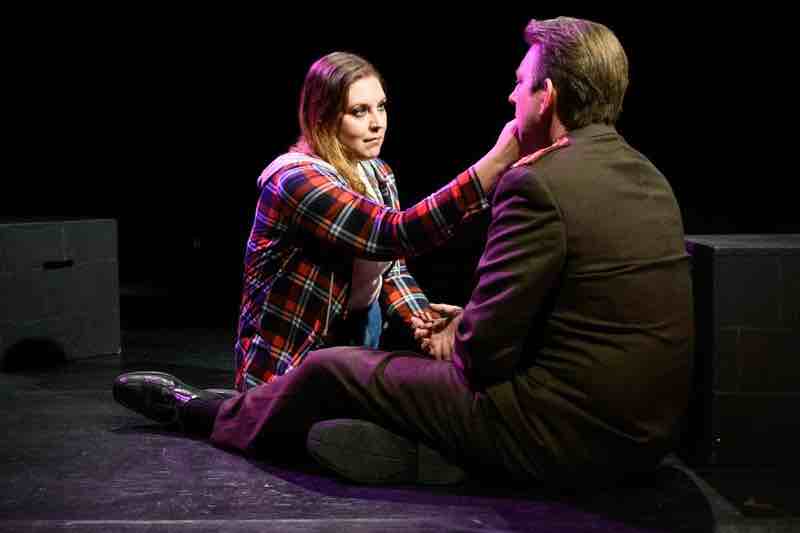Through Sun 11/13
Describe the Night, now on stage at Ensemble Theatre, is Cleveland Heights native Rajiv Joseph’s 2028 Obie Award winner for Best New American Play. Joseph was named a finalist for the 2010 Pulitzer Prize for Drama for his play Bengal Tiger at the Baghdad Zoo, which starred the late Robin Williams in its Broadway run. Many of his plays have had Ensemble productions.
Joseph is noted for his keen skill of writing about contemporary and historical events. He is credited for his “having an ear for the heartbeat of the moment.”
Using a technique referred to as “ecstatic truth.” Describe the Night is a play about stories. It begins with a historical fact and then spins outward “like a fractal pattern with the truth as its seed but something grander than plain truth.” It is fascinating, while often being confusing due to its covering an extreme length of time, with little help in keeping ideas organized.
Set in Russia over the course of 90 years, the play weaves the stories of seven men and women connected by history, myth and conspiracy theories. Much like the typical Russian classic novel, the epic tale is filled with many names, references to historical events and places, and leaves ideas hanging.
The stories include references to many people, famous and unknown, including writer Isaac Babel, a Jewish Russian, a shy young man with dreams of being a successful writer, but who is traumatized from the Polish-Russo war, in which he served as a wire service journalist — a job he took in order to experience something in life he could write about.
Also noted is Nikolai Yezhov, a violent man, who in 1937-40 is the head of Stalin’s Secret Police, and his wife, Yevgenia. Vova is a KGB agent In 1999-2010. He is a politician of enormous stature. Deeply self-assured, yet terrified of the world.
Urzula, in 1989, is an immigrant living in Dresden. She is the grand-daughter of Yevgenia. Mariya is a Russian, who is a journalist for a state-run newspaper. He was born and bred in Moscow and Mrs. Petrovna, a 70-year-old Russian, is the owner of a laundromat.
These characters are woven into a historical timeline that includes such events as the Great Purge, the consolidation of the power of Joseph Stalin, the murder of Leon Trotsky, and the Katyn Massacre, a mass shooting of prisoners of war during World War II that was a cold-blooded act of political murder. Despite overwhelming evidence of Soviet responsibility, Moscow blamed the Germans, and for the rest of the war, Washington and London officially accepted the Soviet countercharge. When the Polish government-in-exile in London demanded an international inquiry, Stalin used this as a pretext to break relations between Poland and the Soviet Union. Also referred to is the Smolensk Plane Crash in which a plane carrying Polish president Lech Kaczyński crashed, causing Poland to lose a large number of the country’s leadership. It happened at a time where Russia and Poland were starting to acknowledge Russian responsibility for the Katyn Massacre.
Without a knowledge of the events referred to in the play, it is often difficult to follow the story. A series of visuals alerting to the year(s) and location might help keep the audience on track.
Ensemble’s production, under the adept direction of the theater’s Artistic Director Celeste Cosentino, leads the audience on an interesting historical experience. Though at times frustrating, the overall effect is a fascinating.
The cast — Joe Pine, David Vegh, Laura Perrotta Ford, Aaron Elersich, Katie Wells, Kyle Huff, and Laura Rau — forms a unified unit. Each develops their characters effectively.
Capsule judgment: This journey of myth, loss, power and pain leaves a message of how historical facts, rumor and subterfuge tell a story that opens the door to the present day, which evolves from experiences of the past. Anyone interested in history and philosophy should be captivated by this tale.
Ensemble’s Describe the Night runs through Sunday November 13 at Notre Dame College. For tickets call 216-321-2930 or ensembletheatrecle.org
